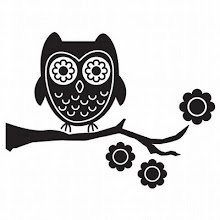If you are reading this, you are probably either menopausal or know someone who is. Either way, it sucks to be you right now. But you are a member of a club -- albeit unwillingly -- and we can learn from and help each other.
According to the National Institute of Health, a hot flash is a sudden temporary onset of body warmth, flushing and sweating. The intensity and frequency of hot flashes varies greatly from woman to woman. The Mayo Clinic reports that 75% of menopausal and post menopausal women experience hot flashes.
But the cause(s) of hot flashes remain somewhat mysterious. There are a multitude of theories to explain what causes them, but no single definitive answer. The most widely accepted theory is that hot flashes are caused by a deficiency in circulating estrogen as a result of declining ovarian function. Which is nice to know, but doesn't make a bit of difference if you are having one.
While every woman is different, here are 8 tips that may make lessen hot flashes or at least make them more bearable. Remember that more gentle therapies (like vitamins and herbs) may take 4-6 weeks for effects to be felt.
- Research suggests that foods rich in phytoestrogens (like soy) may have some benefit for reducing hot flashes and other symptoms of menopause. These plant hormones have weak, estrogen-like effects. It's best that you get your soy from foods rather than from supplements -- there are other benefits to foods containing phytoestrogens,
like fiber and vitamins. Foods that contain soy include tofu, tempeh, miso, soy milk, and whole soybeans (edamame). With a bit of thought, it's easy to work more soy into your diet. Use soy milk for smoothies, on cereal, or in a hot beverage. Eat boiled edamame as a snack, have miso soup before a meal, and include tofu as a protein source once or twice a week. - Black Cohosh is a popular choice for the reduction of hot flashes, although little empirical evidence exists about whether it is effective for menopausal symptoms such as hot flashes and night sweats. According to the North American Menopause Society, despite the lack of definitive evidence, "it would seem that black cohosh is a safe, herbal medicine.”
- Natural progesterone has been found to provide relief for hot flashes and other symptoms of menopause for many women. It is available in over-the-counte
r cream, compound prescription cream or capsule, and in traditional prescription forms. Use according to directions - you already know how powerful hormones are! - A study published in Gynecologic and Obstetric Investigation found that Vitamin E may help reduce the occurrence and severity of hot flashes and night sweats during menopause. The average dose is between 400 and 800 IUs daily. If you are diabetic or have high blood pressure, consult your physician first.
- Exercise at least 30 minutes every day. You can walk, run, ride a bicycle, or do another activity. You can break this into two 15 minute segments if needed. Try to avoid exercise within 3 hours of going to bed to help prevent insomnia and night sweats.
- Avoid dietary triggers that can start a bout of hot flashes. These include alcohol, caffeine, chocolate, aged cheeses and spicy foods. If your hot flashes seem to be worse after consuming these foods, try eliminating the offenders and see if the hot flashes subside.
- Drink a glass of cool water at the beginning of a hot flash. This seems to lessen discomfort in some women.
- Wear natural fiber clothes year round that allow your skin to breathe. Try dressing in layers so you can remove items as needed to maintain comfort.
Update: I don't mind if you want to add a link to your products by commenting here, but you have to take the time to actually make a comment that will be of interest to readers or it won't be published.





No comments:
Post a Comment